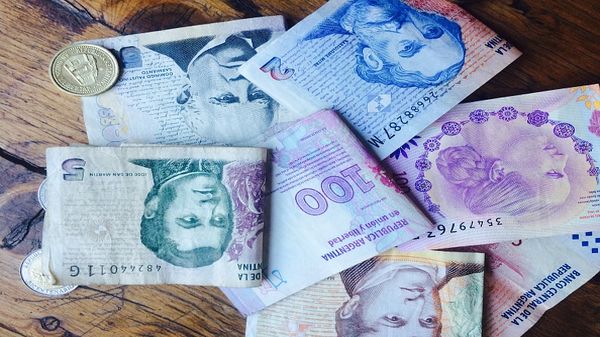
Argentina is struggling to cope with yet another financial crisis.
Investors are increasingly concerned Latin America’s third-largest economy could soon default as it struggles to repay heavy government borrowing. This comes after Argentina’s government unexpectedly asked for the early release of a $50 billion loan from the International Monetary Fund (IMF) on Wednesday.
The Argentine peso crashed to record lows on the news. It saw steep losses in the previous session and collapsed another 15 percent to hit 39 pesos against the U.S. dollar on Thursday morning.
The peso is down more than 45 percent against the greenback this year, exacerbating pre-existing fears over the country’s weakening economy while inflation is running at 25.4 percent this year.
On Thursday, the central bank said it was increasing the amount of reserves that banks have to hold, in a bid to tighten fiscal policy and shore up the currency. It hiked rates by 15 percentage points to 60 percent from 45 percent and promised not to lower them at least until December.
Argentina’s economy ‘likely to contract this year’
The IMF said in a statement Wednesday that it would look to “revise the government’s economic plan with a focus on better insulating Argentina from recent shifts in global financial markets.”
The Washington D.C.-based institute also added that its plan included “stronger monetary and fiscal policies and a deepening of efforts to support the most vulnerable in society.”
“It is now unclear if that will be enough to stabilize the government’s finances amid (a) persistent reserve drain,” Deutsche Bank’s Jim Reid said in a research note published Thursday.
In addition to IMF support, Argentina’s government has also raised interest rates to 45 percent in an attempt to curb inflation and slow the peso’s dramatic slide.
But the world’s highest interest rate levels as well as backing from the IMF have both failed to significantly improve market sentiment.
“Real rates are not tight enough to encourage capital inflows (so) the economy is likely to contract this year,” Reid said.
A number of emerging market countries, including Argentina, Turkey and Brazil, are feeling the impact as tighter monetary policy from the U.S. Federal Reserve has boosted the dollar.
Tumultuous times
In a televised address on Wednesday, Argentine President Mauricio Macri said: “We have agreed with the IMF to advance all the necessary funds to guarantee compliance with the financial program next year.”
“This decision aims to eliminate any uncertainty … Over the last week we have seen new expressions of lack of confidence in the markets, specifically over our financing capacity in 2019,” he added.
When Argentina’s government agreed the terms of the loan with the IMF in May, Macri said he anticipated his country’s economy would recover and so they did not plan to use the money.
Buenos Aires was forced to strike a deal with the IMF after a sharp depreciation in the peso. The three-year standby financing agreement is designed to improve the country’s ailing economy and help it fight inflation — which at nearly 30 percent per year is one of the highest rates worldwide.
Nonetheless, some analysts have criticized the decision to speed up the IMF bailout, saying it smacks of desperation.
Many people in Argentina blame the IMF for encouraging fiscal policies that escalated the country’s worst economic crisis in 2001. At that time, millions of middle-class citizens fell into poverty as the country struggled to recover.
“I know that these tumultuous situations generate anxiety among many of you … I understand this, and I want you to know I am making all decisions necessary to protect you,” Macri said.

